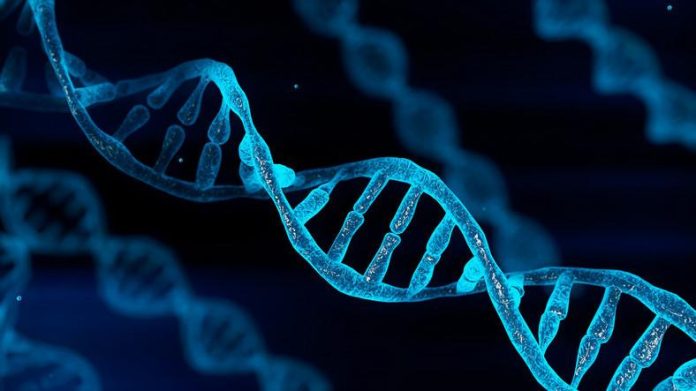In the modern quest for the perfect balance between health and aesthetics, the journey to weight loss often feels like navigating a labyrinth of diets, workouts, and wellness trends. Yet, amid this complex web of lifestyle choices, an invisible thread weaves its way through our efforts, often dictating the pace and success of our endeavors: genetics. As scientists delve deeper into the human genome, a fascinating narrative unfolds, revealing how our DNA not only influences our physical traits but also plays a pivotal role in our body’s response to weight loss strategies. This exploration into the genetic underpinnings of weight management invites us to reconsider the traditional one-size-fits-all approach, offering a glimpse into a future where personalized wellness could become the norm. Join us as we unravel the intricate dance between genes and weight loss, and discover how understanding this relationship could transform our approach to achieving healthier lives.
Understanding Genetic Influence on Metabolism
Genetics play a pivotal role in shaping our metabolic pathways, influencing how our bodies process food and utilize energy. Variations in genes can determine the efficiency of metabolic functions, such as the breakdown of carbohydrates and fats. Some individuals may possess genetic markers that enhance their ability to burn calories quickly, while others might find their metabolism is naturally slower. Understanding these genetic predispositions can provide insights into personalized weight loss strategies, allowing individuals to tailor their diet and exercise plans to align with their unique genetic makeup.
Research has identified several genes associated with metabolism, such as:
- FTO gene: Often linked with obesity, variations in this gene can affect hunger and satiety signals.
- MC4R gene: Influences appetite regulation and energy expenditure.
- PPARG gene: Plays a role in fat storage and glucose metabolism.
These genetic factors can be crucial in understanding why some individuals experience faster or slower weight loss progress despite following similar diets and exercise regimens. By leveraging genetic insights, individuals can adopt a more informed and effective approach to achieving their weight loss goals.

Decoding the Genetic Blueprint for Personalized Diet Plans
As the science of genetics advances, the potential to tailor diet plans based on individual genetic profiles is becoming a reality. By examining specific genes related to metabolism, appetite regulation, and nutrient absorption, nutritionists can craft diet plans that resonate with one’s unique genetic code. This personalized approach to nutrition can potentially enhance weight loss efforts, making them more effective and sustainable.
- Metabolic Rate: Certain genes can influence how efficiently your body burns calories. Understanding these can help in adjusting caloric intake for optimal results.
- Food Preferences: Genetic predispositions can affect taste and food preferences, guiding the selection of foods that are both satisfying and beneficial.
- Nutrient Absorption: Genetic insights can reveal how well your body absorbs different nutrients, allowing for a more precise supplementation and dietary focus.
By leveraging this genetic information, diet plans can be transformed from generic guidelines to bespoke blueprints, tailored to enhance individual weight loss success.

Harnessing Genetic Insights to Optimize Exercise Routines
Understanding the intricate relationship between genetics and exercise can be a game-changer in crafting personalized fitness plans. Genetic variations influence how individuals respond to different types of physical activity, affecting everything from endurance to muscle growth. By identifying specific genetic markers, one can tailor exercise routines to maximize results, enhancing both performance and enjoyment.
- Endurance: Some people are naturally predisposed to excel in endurance activities such as long-distance running or cycling. Genetic testing can reveal these traits, allowing for a focus on stamina-building exercises.
- Strength: Others may find they have a genetic inclination towards strength-based activities, benefiting from weightlifting and resistance training.
- Recovery: Understanding genetic influences on recovery time can help in designing a workout schedule that minimizes the risk of injury and overtraining.
By harnessing these insights, fitness enthusiasts can create a more effective and enjoyable exercise regimen that aligns with their unique genetic blueprint. This approach not only optimizes weight loss efforts but also promotes long-term health and well-being.

Balancing Genetics and Lifestyle for Sustainable Weight Loss
Understanding the intricate dance between genetics and lifestyle choices is crucial in crafting a path towards sustainable weight loss. While genetics may set the stage, influencing factors such as metabolism, fat storage, and appetite, they are not the sole determinants of one’s weight loss journey. Instead, they offer a framework within which lifestyle choices can significantly tip the balance.
- Dietary Habits: Tailoring your diet to align with your genetic predispositions can enhance weight loss outcomes. For instance, some individuals may respond better to low-carb diets, while others thrive on high-protein plans.
- Physical Activity: Genetics can influence muscle composition and exercise efficiency. Identifying the type of physical activity that best suits your genetic makeup can optimize weight loss and improve overall health.
- Behavioral Changes: Understanding genetic predispositions towards behaviors like stress eating or cravings can empower individuals to develop strategies that counteract these tendencies.
By acknowledging the role of genetics, individuals can make informed lifestyle adjustments that not only respect their biological blueprint but also promote lasting weight management. This balanced approach ensures that weight loss efforts are personalized, effective, and sustainable over the long term.
Closing Remarks
As we draw the curtain on our exploration of the intricate dance between genetics and weight loss, it becomes clear that the path to a healthier self is as unique as the DNA strands that compose us. While our genetic blueprint provides the framework, it is our choices, environment, and resilience that color the journey. The science of genetics offers a glimpse into the personalized strategies that may unlock our potential, yet it also reminds us of the complex tapestry that defines human health. As research continues to unravel the mysteries of our genetic influence, we stand at the threshold of a new era in weight management—one that embraces individuality and empowers us to craft a future of informed and sustainable wellness. Let us step forward, armed with knowledge and curiosity, into this evolving narrative where science and self-discovery converge.


































